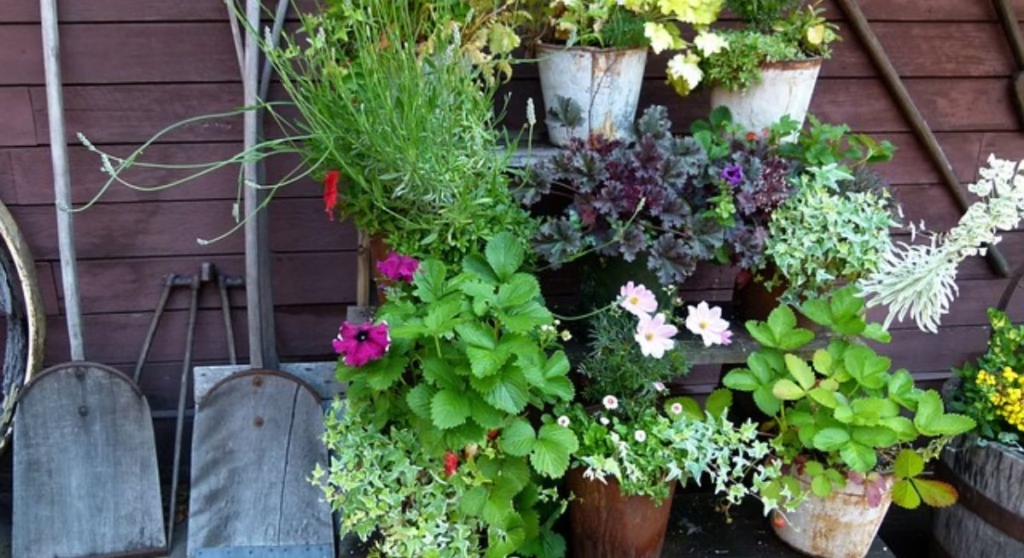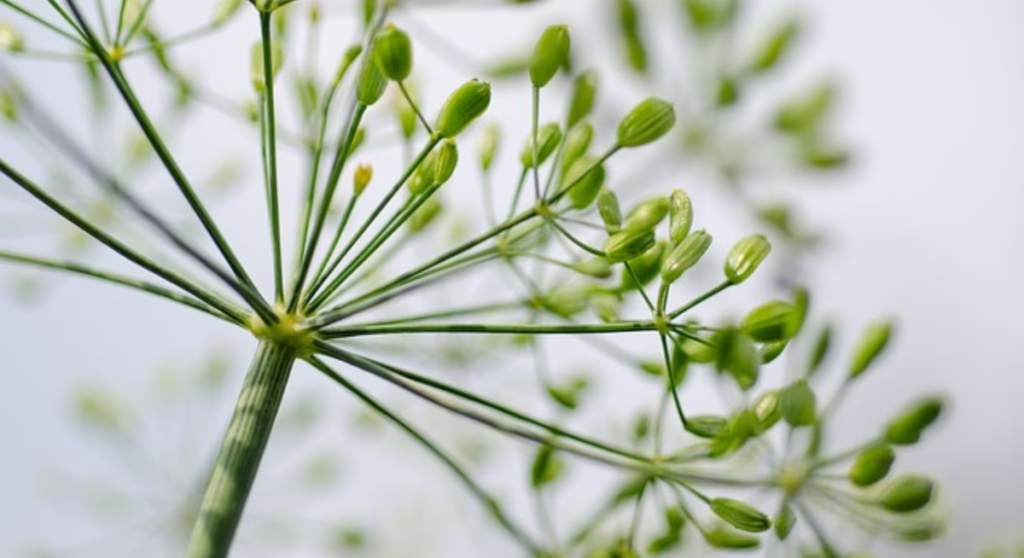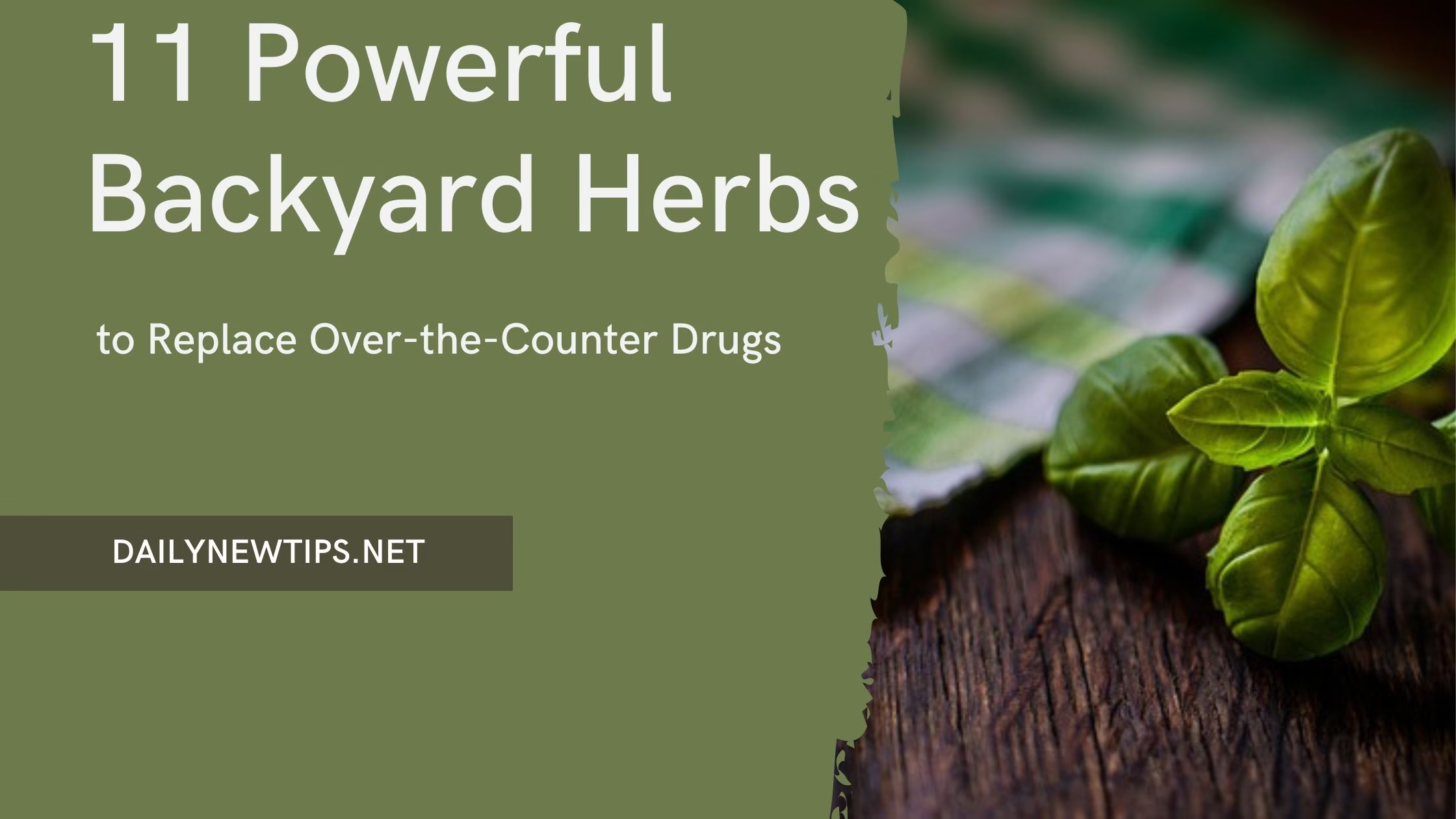Introduction:-
11 Powerful Backyard Herbs to Replace Over-the-Counter Drugs
Nature offers us a treasure trove of remedies that can help alleviate common ailments. By growing herbs in your backyard, you can create a natural pharmacy that reduces your reliance on over-the-counter (OTC) drugs. Below, we explore 11 powerful backyard herbs and their medicinal uses..
11 Powerful Backyard Herbs

1. Aloe Vera – Nature’s Skin Healer
Uses: Known for its soothing properties, aloe vera is excellent for treating burns, cuts, and minor wounds. It also aids digestion and helps relieve constipation.
Replacement For: Burn ointments and laxatives.
2. Chamomile – Calming and Anti-inflammatory
Uses: Chamomile is a gentle sedative that helps with insomnia and anxiety. Its anti-inflammatory properties make it effective for soothing upset stomachs.
Replacement For: Sleep aids and antacids.
3. Peppermint – Digestive Aid
Uses: Peppermint leaves can be brewed into tea to relieve bloating, gas, and indigestion. The menthol in peppermint also helps with headaches and congestion.
Replacement For: Antacids and cold relief medicines.
4. Echinacea – Immune Booster
Uses: Echinacea helps strengthen the immune system and reduce the duration of colds and flu. It’s also used to combat infections.
Replacement For: Cold and flu medications.
5. Lavender – Stress Reliever
Uses: Lavender’s calming aroma is widely used to reduce stress, anxiety, and insomnia. It also helps with headaches and mild skin irritations.
Replacement For: Sleep aids and headache remedies.
6. Calendula – Skin Soother
Uses: This vibrant flower is known for its ability to soothe skin irritations, rashes, and minor burns. It also promotes wound healing.
Replacement For: Antiseptic creams and skin ointments.
7. Thyme – Natural Antiseptic
Uses: Thyme has potent antibacterial and antifungal properties. It’s effective for sore throats, coughs, and respiratory infections.
Replacement For: Cough syrups and throat lozenges.
8. Basil – Anti-inflammatory Marvel
Uses: Basil can help reduce inflammation, ease headaches, and improve digestion. It’s also great for calming stress and boosting immunity.
Replacement For: Pain relievers and digestive aids.
9. Lemon Balm – Mood Enhancer
Uses: Lemon balm is a natural mood booster, helping to reduce anxiety, promote better sleep, and improve focus. It also soothes cold sores.
Replacement For: Anxiety medications and topical cold sore creams.
10. Garlic – Nature’s Antibiotic
Uses: Garlic has antibacterial, antiviral, and antifungal properties. It helps lower blood pressure and cholesterol, and it boosts immunity.
Replacement For: Antibiotics (for minor infections) and cardiovascular supplements.
11. Sage – Cognitive Booster
Uses: Sage enhances memory and brain function while soothing sore throats and aiding digestion. It’s also a natural anti-inflammatory.
Replacement For: Memory supplements and throat lozenges.
How to Start Your Herbal Pharmacy
Creating an herbal pharmacy at home is a rewarding way to access natural remedies for everyday ailments. Here’s a step-by-step guide to help you set up your own herbal haven:

1. Choose the Right Herbs
Start with versatile and easy-to-grow herbs that suit your needs. Some popular choices include:
- Aloe Vera for skin healing and digestion.
- Peppermint for digestion and headaches.
- Lavender for stress relief and sleep support.
- Echinacea for immune health.
- Calendula for skin irritations and wound healing.
2. Plan Your Space
Herbs can be grown in various settings, including:
- Garden Beds: Ideal for herbs like thyme, sage, and basil that need space to spread.
- Pots and Containers: Great for smaller spaces or herbs like mint that tend to take over.
- Windowsills: Perfect for herbs that thrive indoors, like basil and parsley.
3. Provide Optimal Growing Conditions
To ensure healthy plants, pay attention to these key factors:
- Sunlight: Most herbs need 4-6 hours of sunlight daily.
- Soil: Use well-draining soil enriched with organic matter.
- Water: Keep the soil moist but not soggy; overwatering can harm the roots.
4. Harvest at the Right Time
Harvesting at the right time ensures maximum potency:
- Leaves: Pick in the morning when oils are most concentrated.
- Flowers: Harvest just as they start to bloom.
- Roots: Dig up in the fall when the plant’s energy is stored in the roots.
5. Preserve Your Herbs
Proper storage keeps your herbs effective for longer:
- Drying: Hang herbs upside down in a cool, dry place.
- Freezing: Chop herbs and store them in ice cube trays with water or oil.
- Storing: Keep dried herbs in airtight containers away from direct sunlight.
6. Learn Herbal Preparations
Experiment with various methods to use your herbs effectively:
- Teas and Infusions: Steep fresh or dried herbs in hot water.
- Tinctures: Soak herbs in alcohol or glycerin to extract active compounds.
- Salves and Balms: Infuse herbs into oils and mix with beeswax for topical use.
7. Label and Organize Your Pharmacy
Keep your herbs organized with clear labels that include:
- Herb name
- Harvest date
- Usage instructions and benefits
8. Educate Yourself
Invest time in learning about the medicinal uses and potential interactions of your herbs. Trusted resources include:
- Herbal medicine books
- Online courses
- Consultations with herbalists
Benefits of a Home Herbal Pharmacy
Creating a home herbal pharmacy offers numerous advantages, from improving your health to saving money and living sustainably. Here are some compelling benefits of maintaining your own herbal medicine garden:

1. Cost Savings
Herbal remedies can significantly reduce the need for store-bought over-the-counter (OTC) drugs and expensive prescriptions for minor ailments. Growing your own herbs requires minimal investment in seeds, soil, and tools compared to the long-term benefits.
2. Natural and Chemical-Free Remedies
Homegrown herbs are free from synthetic additives and pesticides, ensuring you use only pure and natural remedies. This is especially important for individuals with sensitivities to chemicals found in many OTC medications.
3. Sustainability and Eco-Friendliness
Cultivating herbs at home reduces your reliance on mass-produced pharmaceutical products, which often come with excessive packaging and a large carbon footprint. It promotes a greener, more sustainable lifestyle.
4. Convenience and Accessibility
Having medicinal plants at your fingertips means you’re always prepared for common ailments like headaches, colds, or minor cuts and burns. No more last-minute pharmacy runs!
5. Customizable Remedies
You can tailor your herbal pharmacy to suit your unique health needs. For example:
- Lavender for stress relief.
- Chamomile for better sleep.
- Peppermint for digestive issues.
6. Empowerment and Self-Reliance
Learning to grow and use medicinal herbs gives you control over your health. This knowledge is empowering, fostering a deeper connection to natural healing traditions.
7. Holistic Health Benefits
Herbal remedies often address the root causes of ailments rather than just symptoms. They support overall well-being by strengthening your body’s natural healing abilities.
8. Educational Opportunities
A home herbal pharmacy provides a chance to learn about herbal medicine, plant biology, and sustainable gardening practices. It’s also a great way to teach children about nature and health.
9. Stress Relief from Gardening
Tending to plants has been shown to reduce stress and improve mental well-being. Your herbal pharmacy doubles as a therapeutic garden space.
10. Community and Sharing
You can share your herbal knowledge, remedies, and even plants with friends and family, fostering a sense of community. It’s a meaningful way to help others while promoting natural health practices.
11. Long-Term Health Investment
A home herbal pharmacy encourages preventive care by using herbs that boost immunity, improve digestion, and reduce stress. This investment in your health can have long-lasting benefits.
Final thoughts
By starting your own herbal pharmacy, you not only cultivate a natural medicine cabinet but also embrace a healthier, more sustainable way of living.
References
- National Center for Complementary and Integrative Health (NCCIH): Aloe Vera Overview
- Mayo Clinic: Chamomile Benefits
- Healthline: Peppermint for Digestion
- WebMD: Echinacea Uses
- Journal of Ethnopharmacology: Lavender in Stress Management
- Read more

